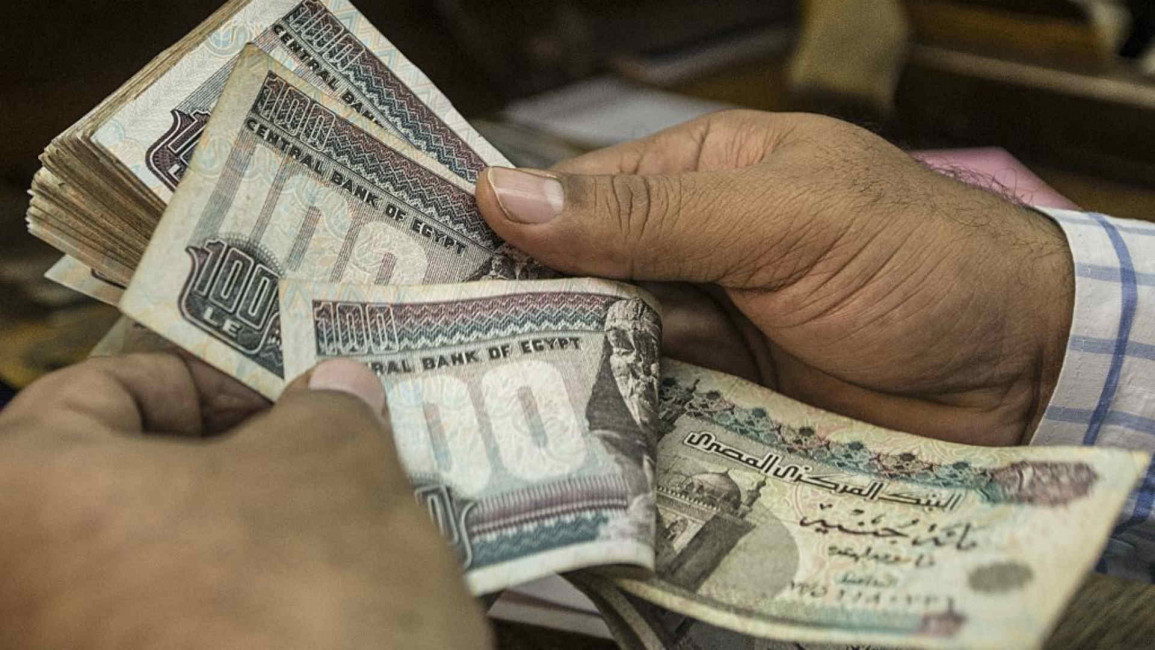What is the exchange rate of USD-Egyptian Pound on the black market after the Cental Bank devaluation of the national currency?
The Egyptian currency has deteriorated in value on the black market after the announcement of the Egyptian Central Bank that it would float the exchange value against international currencies led by the USD on Wednesday, increasing interest rates by 6 per cent and effectively evaluating the pound.
Both the official exchange rate of the EGP and black market rate declined against the USD at different levels.
As of 16 April, 2024, the floating official rate for USD/EGP is 48.50-49.50 (12 March); while on the parallel market, it is 48.5-49.5 EGP (12 March, Sell/Buy) against the dollar, now close to the official rate after trending at nearly double the rate earlier in the year.
It is worth noting that black market rates are by default unofficial and subject to manipulation. Egyptian-government aligned media publish black market rates that diverge significantly from averages published by market-surveying websites to try to influence the price of the EGP. We tracked several of these websites.
Egypt's currency the Egyptian Pound (EGP) has been declining in value against major foreign currencies led by the US dollar (USD) since 2022, in the wake of post-Covid 19 reopening of major economies and the Ukraine war that triggered an inflationary wave pushing interest rates up and reshoring foreign investments back into the developed economies. In the meantime, Egypt's allies in the oil-rich Gulf have stopped unconditionally bailing out Cairo.
According to Oxford Economics Africa, the recently announced UAE foreign direct investment inflows could boost the Egyptian pound to trade at 45/USD by the year-end. It is now already at 49 EGP per USD.
“The Ras El-Hekma deal is a game changer for Egypt over the short- to medium term,” a briefing by Oxford Economics said on Monday “The amount of money coming in over the next two months almost equals the country’s FX reserves and is almost triple that of average annual FDI inflows.”
After the announcement of the Ras al-Hekma deal with the UAE, the EGP initially improved on the black market from nearly 64 to 49 per USD.
Egypt depends on imports and its balance of payments when negative begins to dent its foreign currency reserves, pushing the dollar into shortage.
There is more than one value of the Egyptian pound; one official set by the Central Bank of Egypt and another on the parallel 'black market', similar to the situation in Lebanon. The parallel market reflects the true value of foreign currencies in the hands of ordinary Egyptians, who do not have easy access to the official value of the currency usually reserved for major companies, and importers and exporters.Like in Lebanon, informal websites and apps have emerged tracking the value of the Egyptian pound against foreign currencies in the parallel market, updated around the clock.
The Egyptian pound has been struggling against the US dollar for months, leading prices of essential commodities to hike in a country primarily dependent on importation rather than local production.
President Abdel Fattah al-Sisi of Egypt recently unveiled (Bloomberg, paywall) substantial salary increases to tackle the cost-of-living challenges in the North African nation. Starting in March, the monthly minimum wage in Egypt wasto rise by 50% to 6,000 Egyptian pounds ($194 at the official exchange rate above, 92 USD at black market rates ). Furthermore, he mandated a minimum increase of 1,000 to 1,200 Egyptian pounds ($32-$39 official rate) for all government monthly salaries. The objective behind these decisions, as per a statement from Egypt’s State Information Service, is to alleviate the financial burdens faced by citizens, but previous wage hikes have only increased inflation.
Egypt's initial agreement with the IMF dictated that the country would benefit from a US$3 billion loan over 46 months, provided that state and military control over the economy are loosened and an exchange rate flexibility is imposed, allowing market forces to determine the value of the local currency.
In recent months, thousands of citizens resorted to purchasing gold to preserve the value of their savings in local currency, which led the prices of the precious yellow metal to skyrocket.
Egypt has encountered an enormous financing gap surpassing US$8 billion for the fiscal year 2023/2024, which could amount to over US$20 billion in four years. The country's external debt soared by 5.1 per cent during the fourth quarter of 2022, reaching US$162.94 billion, a total of US$10 billion more than the previous quarter.
The IMF is yet to comment on the floatation.
Last updated: 16 April 10:00 AM GMT



